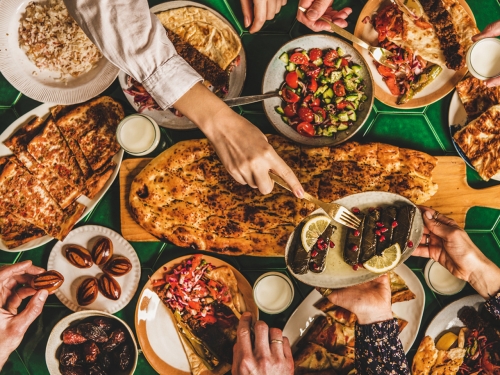'Ramadan holiness reduced to overindulgence'
TDT | Manama
The Daily Tribune – www.newsofbahrain.com
Reported by Tofoof AlMansoor
There are certain unmatched pleasures during Ramadan, such as family members assembling around feasts of a variety of foods and beverages, and eagerly anticipating the approach of the Maghreb prayer, which signals when Muslims are permitted to break their fast and begin eating.
However, Arabs' Ramadan habits have become far removed from the primary purpose of the holy month itself. It is a cultural norm among Arabs that tables should be piled high with various kinds of food for people to compensate for the time they went without eating.
The popular belief is that people’s hunger causes them to consume twice as much as they normally do. Many fail to realize that the Muslim holy month of Ramadan is a time of self-control and abstinence, not excessive consumption, which has become one of Ramadan’s constants.
The inherited culture of extravagance prevents people from realizing that fasting can be beneficial to both the mind and the body. It aids in the mobilization of fat for energy, thereby promoting weight loss, which in turn lowers cholesterol levels, regulates blood pressure, and results in improved insulin sensitivity, according to health experts.
“To prevent overeating, begin slowly, take small breaks between courses, and slowly chew every bite. When your body is full, don’t linger around the table. "The proximity of meals influences how much you consume,” said nutritionist Hala Fardan in an interview with The Daily Tribune. She stated that overeating defies Ramadan from a health perspective. “This is similar to working out but eating twice as much afterwards,” Hala said.
Related Posts

